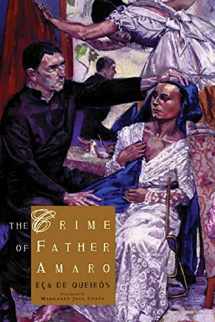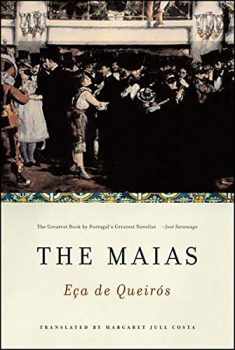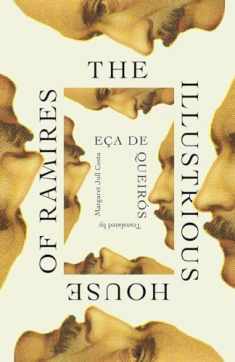
The Crime of Father Amaro
ISBN-13:
9780811215329
ISBN-10:
0811215326
Author:
Margaret Jull Costa, José María Eca de Queirós
Publication date:
2003
Publisher:
New Directions
Format:
Paperback
480 pages
FREE US shipping
Book details
ISBN-13:
9780811215329
ISBN-10:
0811215326
Author:
Margaret Jull Costa, José María Eca de Queirós
Publication date:
2003
Publisher:
New Directions
Format:
Paperback
480 pages
Summary
The Crime of Father Amaro (ISBN-13: 9780811215329 and ISBN-10: 0811215326), written by authors
Margaret Jull Costa, José María Eca de Queirós, was published by New Directions in 2003.
With an overall rating of 3.9 stars, it's a notable title among other
books. You can easily purchase or rent The Crime of Father Amaro (Paperback) from BooksRun,
along with many other new and used
books
and textbooks.
And, if you're looking to sell your copy, our current buyback offer is $0.72.
Description
An unflinching portrait of a priest who seduces his landlady's daughter, made into an acclaimed and controversial motion picture.
Eça de Queirós's novel The Crime of Father Amaro is a lurid satire of clerical corruption in a town in Portugal (Leira) during the period before and after the 1871 Paris Commune. At the start, a priest physically explodes after a fish supper while guests at a birthday celebration are "wildly dancing a polka." Young Father Amaro (whose name means "bitter" in Portuguese) arrives in Leira and soon lusts after―and is lusted after by―budding Amelia, dewy-lipped, devout daughter of Sao Joaneira who has taken in Father Amaro as a lodger. What ensues is a secret love affair amidst a host of compelling minor characters: Canon Dias, glutton and Sao Joaneira's lover; Dona Maria da Assuncao, a wealthy widow with a roomful of religious images, agog at any hint of sex; Joao Eduardo, repressed atheist, free-thinker and suitor to Amelia; Father Brito, "the strongest and most stupid priest in the diocese;" the administrator of the municipal council who spies at a neighbor's wife through binoculars for hours every day. Eça's incisive critique flies like a shattering mirror, jabbing everything from the hypocrisy of a rich and powerful Church, to the provincialism of men and women in Portuguese society of the time, to the ineptness of politics or science as antidotes to the town's ills. What lurks within Eça's narrative is a religion of tolerance, wisdom, and equality nearly forgotten. Margaret Jull Costa has rendered an exquisite translation and provides an informative introduction to a story that truly spans all ages.

We would LOVE it if you could help us and other readers by reviewing the book
Book review

Congratulations! We have received your book review.
{user}
{createdAt}
by {truncated_author}




